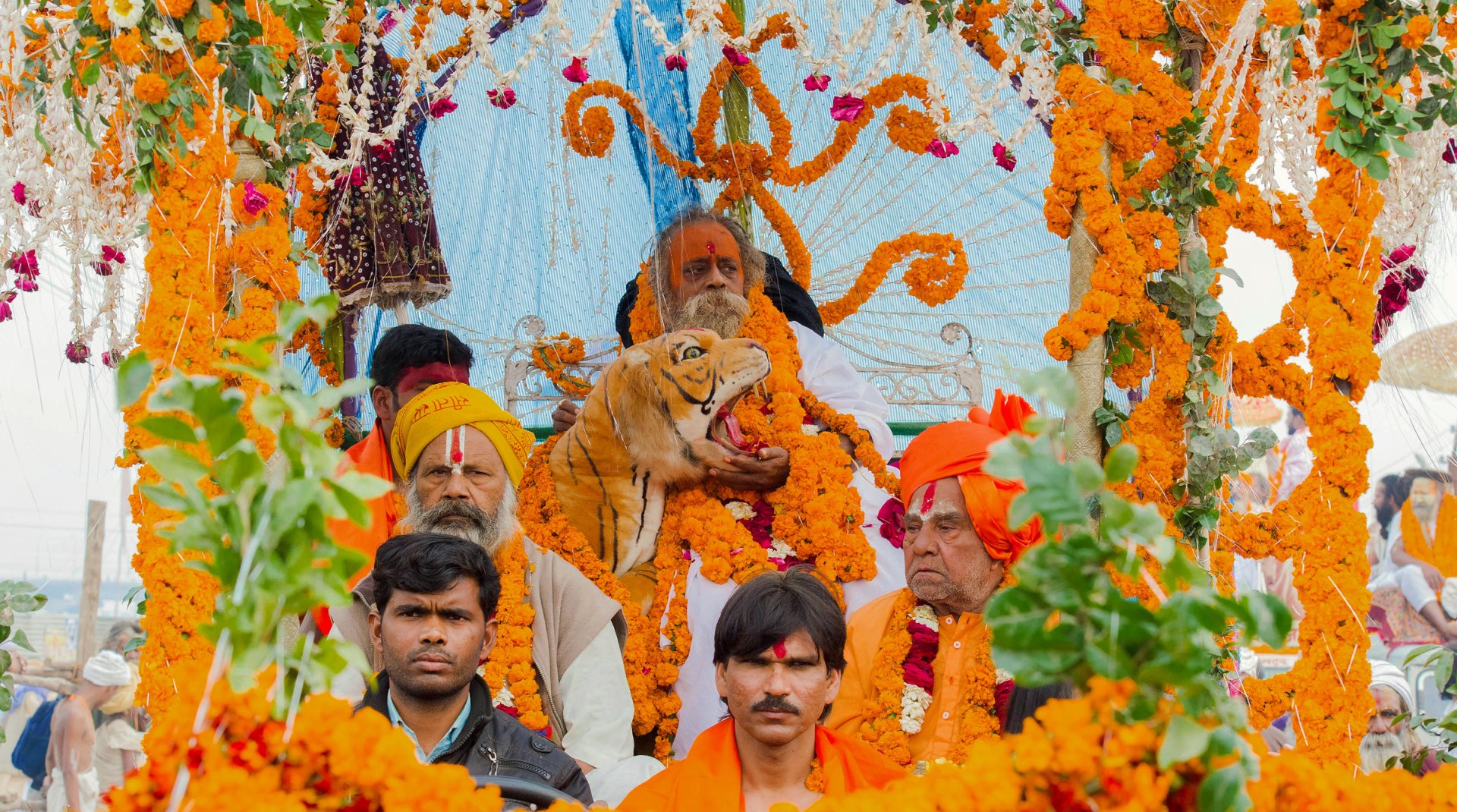
Kumbh Mela 2013
Alfred Yaghobzadeh
for Smithsonian Magazine
Walking without a set destination in mind is perhaps the best way to enjoy a journey, lapping up all the experiences that arise, without assigning relative scales or weights to them.
A walk around the Kumbh Mela area (India) is one such experience. Even if you intend to reach a certain destination, the area is so vast that you invariably end up lost, caught in the moving mass of humanity. But getting lost at the Kumbh is an opportunity to soak up experiences never encountered in everyday life.
The Kumbh Mela myth is sometimes censored to airbrush out the wickedness of the gods. Here is the uncensored version, with additional transitions and conclusions of my own not found anywhere else.
Preview
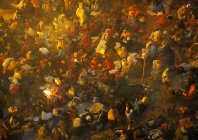
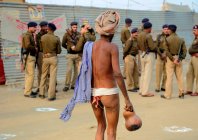
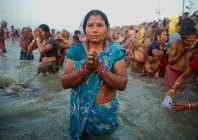
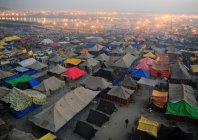
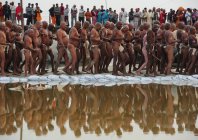

Long ago, the planet Earth was not simply a place to visit, but was a permanent residence for both gods and demons: the demons were powerful while the gods were cursed. The gods (to put it bluntly) were fearful, lying cowards. No one knows why Brahma told them that the elixir of immortality which they did not have would be theirs if they churned the great milky ocean for one thousand years.
Perhaps the Creator, believing the task far beyond their strength or will, was merely handing out work to “keep them busy,” in which case Brahma was the last one who ever underestimated the guile of the gods.
The gods made a pitcher – Kumbh – to collect the sacred nectar. The gods knew that they had a millennium during which they could devise an ingenious plot to stop others drinking from the sacred source, so then persuaded the demons to help, in exchange for an equal share. When the Kumbh was filled to the brim with the elixir of immortality, they carried out their long-planned double-cross.
A great battle ensued. The gods, being the weaker party, fled with the Kumbh, and for twelve days they gulped down the divine elixir as they galloped, with the thirsty demons in hot pursuit; in human time, the chase went on for twelve years. The gods spilled only four drops of the nectar of immortality, the largest one falling at the confluence of the rivers Yamuna and Ganges.
Followers believe, in their hearts, that a third mythical and underground river, the Sarasvati, also rises here as sacred waters merging with others. Every twelve years, a Mela is held at the point where the three great rivers meet, and when, only then, the Sarasvati briefly renders up the drop spilled, the primordial nectar of the gods. Pilgrims have a once-in-a-lifetime opportunity to cleanse their karma in the sacred source which made the gods divine and the demons demonic.
Alfred Yaghobzadeh






